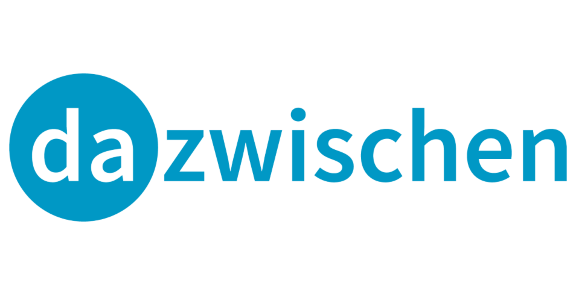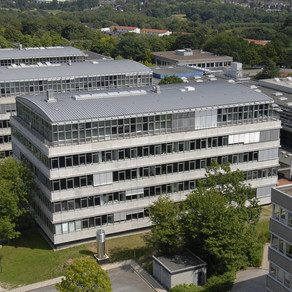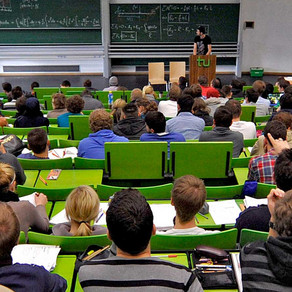Completed research projects
Details about this research project can be found on the project website of the Federal Office for Building and Regional Planning (BBR).

The City of Dortmund and TU Dortmund University are working together on an innovative research project aimed at charactarization of proposed quiet areas in Dortmund. The research project supports the formal ‘Noise Action Plan’ instrument required for all urban regions by EU law and codified in the German spatial planning system under the German Federal Imission Control Act (BImSchG §47).
The project “Planning in Germany and Pakistan: Responding Challenges of Climate Change through Intercultural Dialogue” aims to start and stimulate dialogue between the students and young academics from Germany and the higher education institutes in Pakistan. It targets modernization of teaching, promotion of skill development of young academics, identification of teaching and research areas of shared scientific interest, and establishing networks and cooperation regionally and internationally.
At the heart of the DAAD-funded university cooperation is the desire to support the University of Mosul in times of crisis, to ensure international connectivity in teaching and research, to develop strategies for the time after the crisis and to promote interdisciplinary cooperation and networking in order to create the conditions for building a longer-term partnership.
Further information
Planning in Germany and Iran: Responding Challenges of Climate Change through Intercultural Dialogue
The project “Planning in Germany and Iran: Responding Challenges of Climate Change through Intercultural Dialogue” is a DAAD funded research project between the Department of Spatial Planning at TU Dortmund University and Daneshpajoohan Pishro Higher Education Institue (DHEI) of Esfahan, Iran.
With our research we want to find out whether wind turbines in certain landscape types have a stronger (or weaker) impact on the landscape and whether the different preferences can be attributed to different socio-demographic groups (different gender, age, education, ethnicity, etc.).

The BMBF funded research project DAZWISCHEN (engl. between) deals with the structural change in the Rheinische Revier between Düsseldorf, Cologne and Bonn in the east and the German-Netherlands border region around Aachen in the west. The project is led by Prof Stefan Greiving (TU Dortmund University, IRPUD). Besides LLP and IRPUD, RWTH Aachen (Lehrstuhl und Institut für Städtebau), infas, Düren, Kreis Euskirchen and Zukunftsagentur Rheinisches Revier are involved.
Planning in Germany and Iran: Responding Challenges of Climate Change through Intercultural Dialogue
The project “Planning in Germany and Iran: Responding Challenges of Climate Change through Intercultural Dialogue” is a DAAD funded research project between the School of Spatial Planning at TU Dortmund University and Daneshpajoohan Pishro Higher Education Institue (DHEI) of Esfahan, Iran.
Sound has been a topic of urban development for years. In the context of health research, however, it has so far been limited to the risk factor "noise." Soundscapes, on the other hand, encompass all audible sounds: natural, human, technical and musical and are augmented by the spatial and temporal symphony of an urban environment. In a project funded by MERCUR, the Centre for Urban Epidemiology at the University Hospital of Essen and the Technical University of Dortmund are analysing how soundscapes and health in the Ruhr area are connected.
Ziel des BMBF-geförderten Projekts „Zukunft-Stadt-Region-Ruhr“ (ZUKUR) ist es, sowohl Beitrage zur Erhöhung der Klimaresilienz als auch zum Abbau sozio-ökologischer Ungleichheit für die Stadt-Region Ruhr zu erarbeiten. Es sollen im Rahmen von Reallaboren auf Regional-, Stadt- und Quartiersebene bestehende und künftige Herausforderungen in der Stadtregion Ruhr identifiziert und Lösungen zum Umgang mit künftigen Klimafolgen und sozio-ökologischen Ungleichheiten erarbeiten werden.
This research project, funded by the Dr. Gustav Bauckloh-Stiftung, Dortmund, is intended to provide a basis for the historical development of nature conservation, the legally defined goals and tasks of nature conservation (and landscape management), the realization that despite the introduction of a large number of instruments under nature conservation law and comparatively far-reaching efforts by official and voluntary nature conservation, it has not been possible to halt the decline in biological diversity, particularly in Germany, as well as first empirically secured knowledge about the experience and learning process of children and adolescents in dealing with nature, which not only proves positive effects for the cognitive development of children and adolescents, but also determines longer-term differences in behavior towards nature and the environment, an innovative concept will be developed using the example and with the support of the city of Dortmund, with which the framework and implementation conditions for nature conservation in the city can be sustainably improved. Project partners are the WWU Münster, Department of Educational Sciences, focus on school theory and research, and the Environmental Agency of the City of Dortmund.
The aim of this project, which is funded by the German Federal Ministry of Education and Research, is to strengthen the transfer of knowledge between the Chair of Landscape Ecology and Landscape Planning at the Technical University of Dortmund and the Xinjiang Institute of Ecology and Geography, Urumqi/China, in the area of determining the effects of global change on land use systems. The main focus is on the application of multi-criteria methods to assess the interactions between land use systems, water management and desertification phenomena in the Xinjiang region. The knowledge developed will be used to ensure the sustainable usability of natural resources such as drinking water.
As a basis for site planning for wind turbines in the regional land use plan and in order to have an up-to-date and valid data basis for further planning projects with regard to the protected resource of landscape/landscape appearance, the Saarbrücken Regional Association has financially supported a research project at TU Dortmund University on GIS-supported landscape analysis and with conflict analysis for potential priority areas for wind turbines. The project is scheduled to run until 2017.
Planned power plants at several locations in Germany are visualized according to a uniform methodology in order to assess the impact on the landscape.
From the end of 2009, urban concepts on climate change are to be tested in model projects. In the ExWoSt preliminary study, an integrated "Municipal Climate Change Strategy and Action Set" in the form of a decision support tool is being prepared and tested in test municipalities. The essential task and activity areas for climate protection and climate adaptation will be elaborated in upstream expertises.
Details about this research project can be found on the project website of the Federal Institute for Research on Building, Urban Affairs and Spatial Development (BBSR).
The PLIQ (Planning Education for Iraq) project was launched in August 2009.
It is based on an academic cooperation between the German and Iraqi governments from February 2009 and is part of the DAAD-funded programme "Strategic Academic Partnership with Iraq".
Further information
Bei dem Forschungsprojekt "PRIMA" handelt es sich um ein von der EU gefördertes Projekt des 7. Forschungsrahmenprogramms. Ziel des Projektes ist es, Downscaling-Methoden zu entwickeln, mit deren Hilfe die Auswirkungen unterschiedlicher EU-Politiken auf regionaler und lokaler Ebene für multifunktionale Landnutzungen und ökonomische Aktivitäten analysiert werden können. Projekt-Koordinator ist das CEMAGREF (Centre national du machinisme agricole, du génie rural, des eaux et des forêts, France). Es sind 11 wissenschaftliche Institutionen aus 8 verschiedenen europäischen Ländern beteiligt.
The project "European Culture expressed in Agricultural Landscapes" (EucaLand) is funded by the EU in the program "Culture 2007-2013". 42 partner institutions from 27 countries are involved in the project and address the question of how agricultural landscapes can be described, classified, evaluated and developed from a cultural landscape perspective.
The main methodological study for an area-wide landscape image analysis and assessment in Mecklenburg-Western Pomerania as a contribution to the expert landscape program as well as to the update of the peatland protection concept is being developed on behalf of the Ministry of Agriculture, Environment and Consumer Protection Mecklenburg-Western Pomerania.
Publication: Gruehn, D. & Roth, M. (2008): Methodological pre-study for an area-wide landscape analysis and assessment in Mecklenburg-Western Pomerania as a contribution to the expert landscape program as well as to the update of the peatland protection concept. LLP-report 005. Dortmund. 27 p.
Der Regionalverband Ruhr (RVR) bereitet derzeit die Erarbeitung eines "Freiraumkonzeptes Metropole Ruhr" für sein Verbandsgebiet mit einem Schwerpunkt im "Entwicklungsraum Stadtlandschaft" vor. Das Forschungsprojekt dient der wissenschaftlichen Begleitung dieses Planungsprozesses sowie der Entwicklung von innovativen planerischen Konzepten und Instrumenten zu Fragen des urbanen Freiraum- und Biotopverbundes. Den Freiraumansprüchen der Bevölkerung wird hierbei besondere Aufmerksamkeit gewidmet.
Further information






